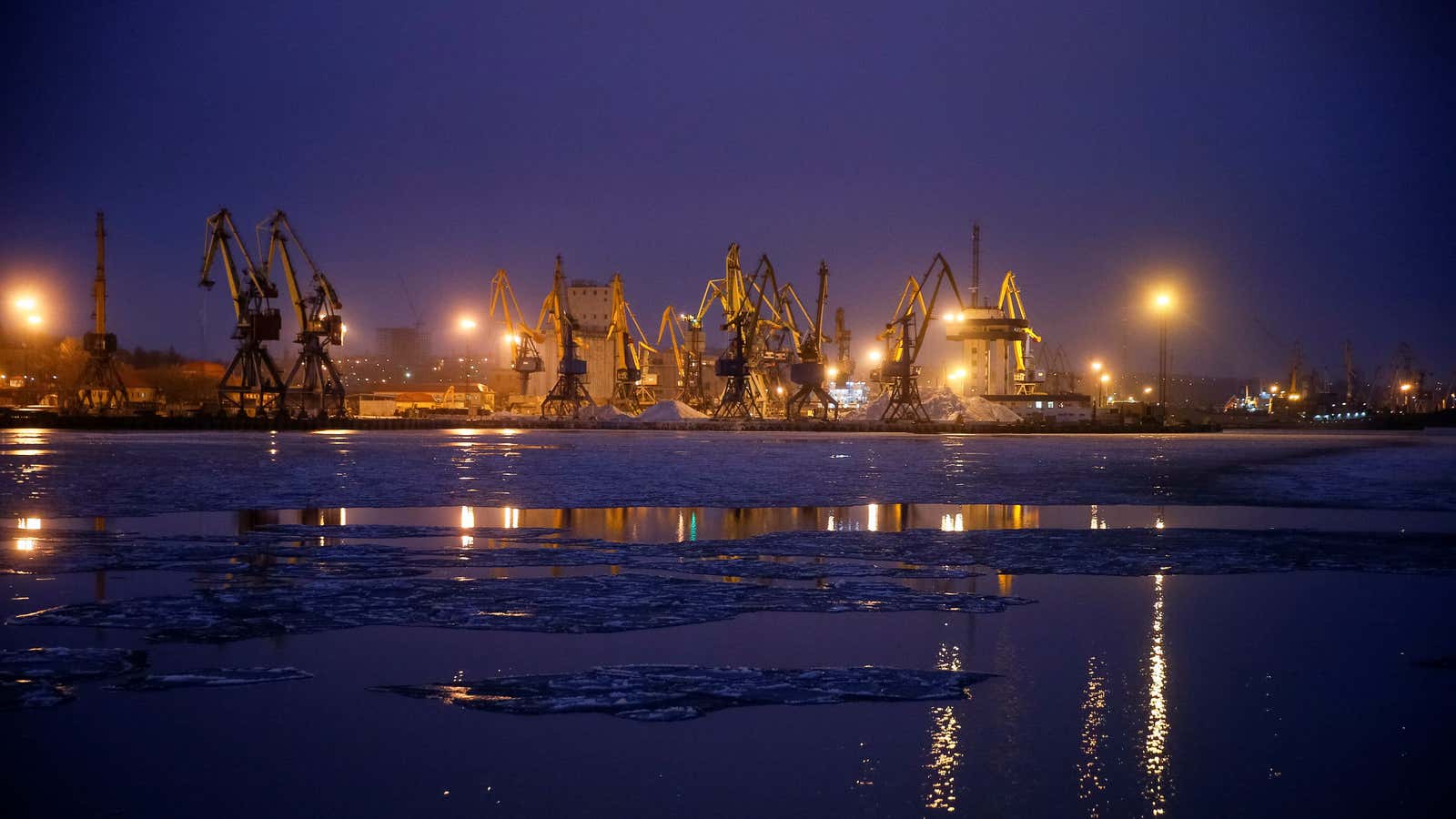Russia says it is closing shipping in the Azov Sea, according to reports from Agence-France Presse (AFP) on Thursday (Feb. 24) and Russian news agency Interfax. The Azov Sea is one of Ukraine’s two access points to sea trade, via the main ports of Berdyansk and Mariupol. The move further fuels uncertainty about the impact of the conflict on global trade.
Ukraine is one of the world’s leading exporters of steel, grain, and sunflower oil. Seventy percent of Ukraine’s trade goes by sea, with about two-thirds passing through the ports near Odessa, on the Black Sea.
Since Russia annexed Crimea in 2014, trade from eastern Ukraine passing through the Azov Sea had collapsed, with port throughput at Mariupol, a port near separatist areas as well as steel and grain producers, halving between 2013 and 2019. Ukrainian sea patrols say that Russian warships have been lurking in the Azov Sea since 2014.
While Ukraine and Russia have equal rights to the Azov Sea, Russia claims control of the Kerch Strait, the sea’s only entry point to the Black Sea. Russia raised concerns about the closure of the waterway during military exercises conducted in the Black and Azov Seas that was to begin on Feb. 11. By Feb. 15, however, the Ukraine Sea Ports Authority confirmed that all ports at the Azov Sea were open for global trade and the Russian authorities had cancelled the military exercises.
On Feb. 16, the Joint War Committee, made up of London marine insurers, convened a special meeting to assess tensions between Russia and Ukraine, and deemed the Black and Azov Seas high risk.
Neil Roberts, head of marine and aviation for Lloyd’s Market Association, which represents insurance companies, told Reuters on Feb. 16 that adding the seas to the high risk list was “a precautionary notification so that insurers and shipowners will be able to properly negotiate their exposure as it develops.”
The sanctions issued in an executive order by US president Joe Biden on Feb. 21 may also result in prohibiting ships from calling at the port of Mariupol, according to legal advice provided to marine insurance provider West of England.
According to Luke Coffey of the Washington-based Heritage Foundation think tank, control of the Azov Sea is vital for Russia’s resupply of troops in Crimea, as well as its longer-term strategy for the Black Sea.
